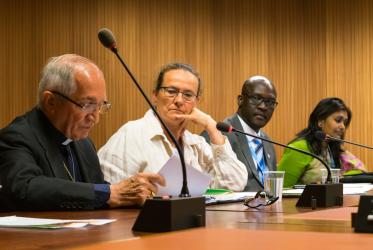Displaying 61 - 80 of 92
Voices from HIV workshop reflect deep impact
07 April 2016
New video presents Ecumenical Advocacy Alliance’s call to action
13 January 2016
Consultation considers right to food in context of climate change
15 December 2015
Interfaith workshop calls for justice and compassion in finance
03 December 2015
Climate pilgrimage toward COP21 pauses in Geneva
05 November 2015






